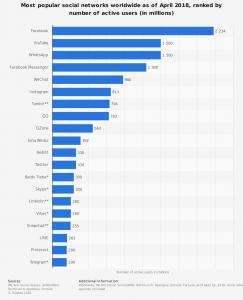Why your Business Needs Powerful Communication for its CSR
Corporate Social Responsibility (CSR) is an important aspect of your strategy. Customers expect your company to think about its impact and just thinking about being exposed online as a company harming its environment makes many CEOs cringe.
However, it seems that on the one hand, customers are skeptical about CSR practices of companies and, on the other hand, some companies seem to struggle with communicating their (good!) CSR practices and results. This gap can be addressed by a clear communication plan regarding your company’s CSR practices and results.
In this blog, I will first discuss the skepticism of the customers. Then, I will address the gap between good CSR results and the perception of good CSR results, using examples of top performing companies.
Skepticism about the motivations behind CSR efforts
In Harvard Business Review, Rosa Chun notices that leaders of Fortune 500 companies feel all their corporate giving goes unappreciated. Apparently, the public has grown increasingly skeptical about the motivations behind CSR efforts. Chun does not blame them. She believes that this is due to the discrepancy in the two dominant approaches in rationalizing why corporations should be ethical.
She recommends examining the philosophical teachings of Jeremy Bentham or Immanuel Kant to understand this, and she advises the leaders to learn some Aristotelian lessons and to incorporate the role of emotion in their CSR efforts.
The philosophy behind CSR
Kant argued people should act out of moral obligations. Chun gives the example of a person begging for money on the street: you do not feel compassion for that person, but you will help anyway because you feel it is your duty. It is coming from public pressure, but not from your true respect or empathy for that person. CSR efforts have this disconnection too.
Bentham argued a unit-based approach; as long as the outcome is bigger than the input, the action is justified. From the utilitarian perspective, profit-driven organizations see CSR as a way of gaining a business advantage or to recover from a reputation loss.
The problem with most CSR efforts is that these duty-based and utilitarian approaches are essentially based on rationality, albeit with contrasting motivations, Chun argues. The company is there to make money, but it also tries to appear to meet the public expectation of acting ethically. To customers and employees, that can simply come across as calculating and superficial. This is the reason why the CSR activities often do not ring true.
The missing link is emotion. Companies forget emotion in CSR, and that is why they fail.
Emotional attachment is the important mediator of CSR success
Aristotle advocated for developing a character of virtuousness that leads to happiness for one’s self and others. These traits of the ideal character derive from natural internal tendencies. If they are nurtured over time, they become established in due course.
Chun explored the concept of organizational virtue and how to adapt it to corporate strategy. Organizational virtue (integrity, empathy, zeal, conscientiousness, warmth, and courage) is linked to employee and customer satisfaction via identification. Identification is a perceived emotional attachment to the company. For employees, identification with a firm is driven most significantly by integrity (such as being honest, trustworthy), and for customers, identification with the company is driven chiefly by empathy (such as being concerned, reassuring).
Chun’s findings mean that when employees perceive an organization to hold high integrity, this leads to employee identification. This emotional attachment leads to satisfaction and differentiation. Similarly, when customers perceive an organization to show strong empathy, it enhances their emotional attachment to the company. This emotional attachment leads to satisfaction and differentiation too. The emotional attachment is the important mediator of CSR success.
According to Chun, a key strategic implication of her findings is that companies would be better off changing their CSR strategy from differentiation to identification. Consideration of stakeholder emotion is what makes virtue ethics distinctive from the other CSR approaches. Developing strategic virtues in the minds of stakeholders has the potential to turn positive emotion into a real competitive advantage.
Powerful communication is required to create or improve emotional attachment
Karsten Strauss says that for internationally operating companies, it is difficult to build a great reputation for social responsibility. It takes more than just commitment to a community, building a solid workplace and honest governance; it takes the ability to communicate the positive deeds to others; otherwise, they go unnoticed.
The latest survey by the Reputation Institute sheds light on which companies are seen as the most socially responsible by consumers. The results this year mostly show the same conglomerates at the top, though there a couple of notable movements.
RI tracks social responsibility reputations among companies by zeroing in on consumers’ perceptions of their governance, positive influence on society and treatment of employees. Some companies that are perceived to perform well in terms of CSR are Google, Microsoft, and The Walt Disney Company.
The company that dropped the farthest this year was Volkswagen, which saw its CSR score fall 13.2 points and did not manage to crack the top 100, due to the scandal it faced publicly in September 2015.
Perceived CSR results
These CSR rankings are largely about perception. The results of the annual surveys are merely an indicator of which firms consumers believe are socially responsible. “When we talk about corporate social responsibilities, we are talking about realities,” Reputation Institute managing partner Fernando Prado said. “When we are talking about reputation, we are talking about perception.”
The example he gives is the difference between BMW and Unilever. Both companies are industry leaders in terms of social responsibility. However, BMW placed fourth and earned 73.9 points in the CSR survey, scoring 8.1 points higher than Unilever, which placed 88th. Prado blames the lack of knowledge on the part of consumers about Unilever’s culture of responsibility for this difference. Prado urges Unilever to address that knowledge gap.
Apparently, companies are not communicating what they do, their good deeds. Prado continues: “A lot of times, we see that companies have a lot of people who do not know a lot about what they are actually doing or people that have a very neutral opinion. If they are able to communicate, they can build their reputations, and reputations build businesses.”
The effect of powerful communication
Companies may find it more difficult to communicate their CSR activity than to sell their products. Products are advertised and marketed to consumers openly. Being transparent about CSR can be difficult and it is hard to know how to blow your own horn with class or boast effectively.
If the communication of transparent, truthful, and genuine companies that provide information and stand out from the crowd is perceived to be just that, it tends to have a greater impact on the perception of CSR.
In addition, the selection of the platform for the company’s communication matters. Companies that have a weaker reputation tend to be more effective at changing the public’s perception about them by communicating through third-party channels, such as television or radio news, social media postings or blogs. Firms with stronger reputations can reinforce consumers’ positive sentiments about them by themselves, through their websites, newsletters, advertisements or sponsored or direct social media campaigns.
Gap
So, on the one hand, customers expect your company to behave in a socially responsible way, but they do not always believe your motives when you do just that. On the other hand, companies have a hard time explaining the good things they do and feel like their efforts are not appreciated. This gap definitely needs to be addressed, because CSR is very important to both stakeholders and companies.
Social business
If you are thinking about starting a company and you feel your idea helps society, it may be interesting to read about social business. The blog ‘How to Start a Social Business’ offers the definition of a social business as coined by Muhammad Yunus. Then, it lists the 7 principles of social business and it gives 3 tips on how to start a social business. Finally, 6 examples of social businesses, which have just started, are given as well as the founders’ advice for you.
Business & Finance Articles on Business 2 Community(58)
Report Post






